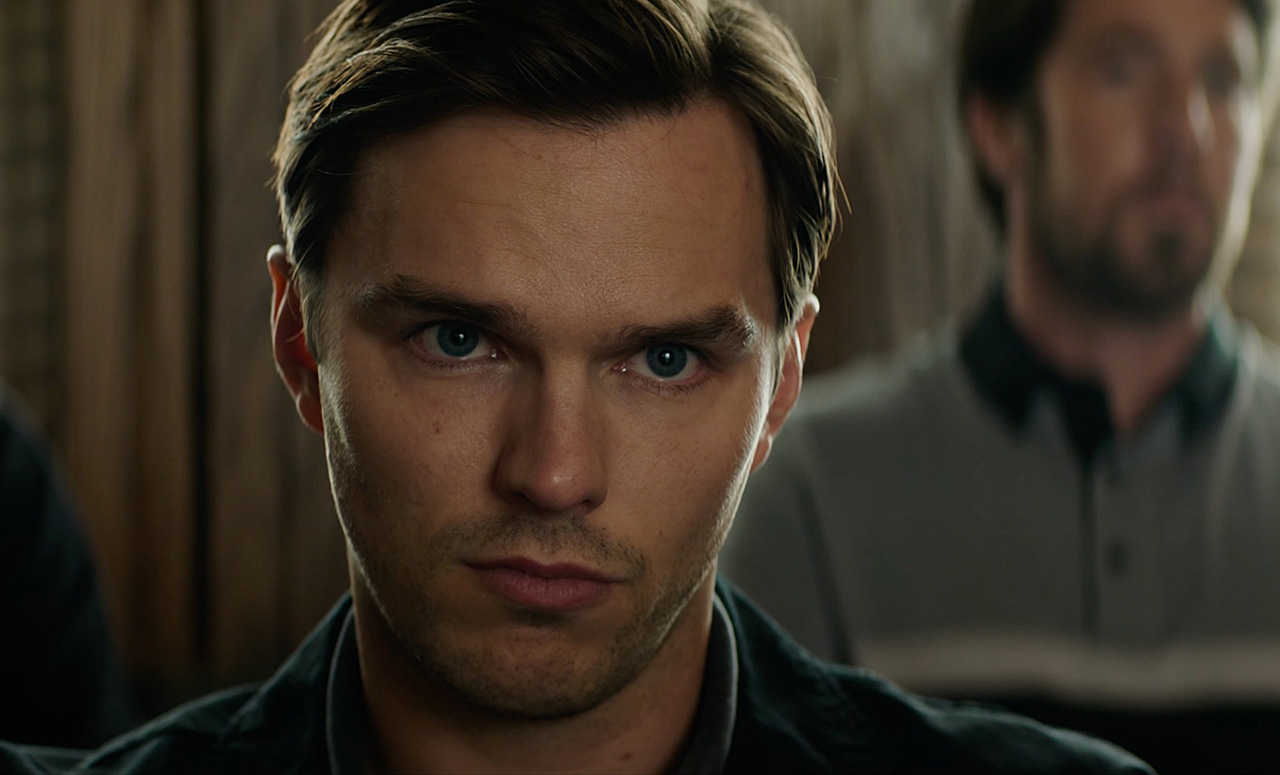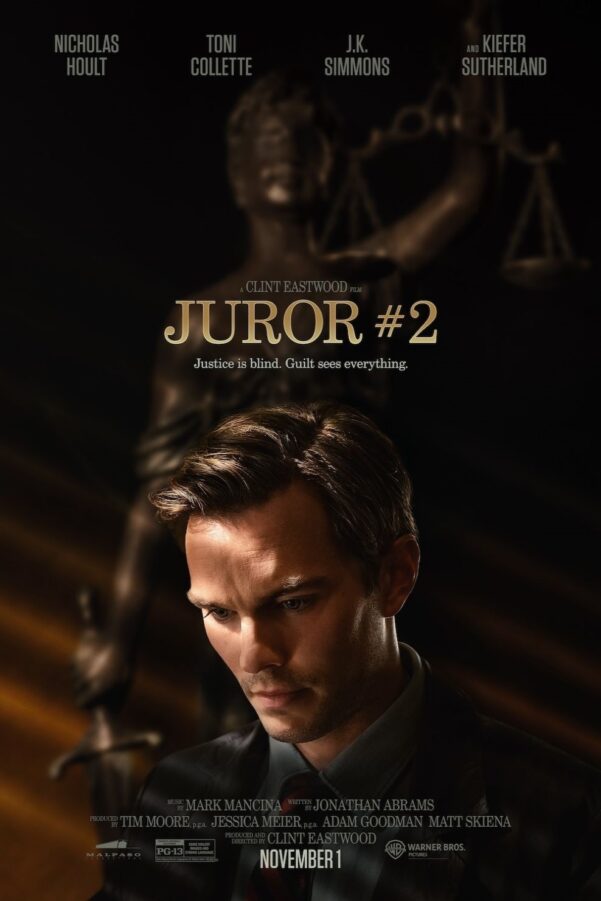Juror #2

In a surprising turn for his 42nd and potentially final film, Clint Eastwood brings his signature no-nonsense approach to the courtroom drama genre in Juror #2, using the American jury system to examine the complex role of individual conscience in a legal framework often driven by categorical judgments and expediency. Moving beyond black-and-white moral boundaries, Eastwood delves into accountability as a vital yet often overlooked dimension of justice, suggesting it requires personal sacrifice from those who truly commit to upholding it. And in a manner reminiscent of Crime and Punishment, Juror #2 probes deeper, questioning whether individuals should be judged solely for their actions or for their underlying character flaws – and whether these can ever truly be separated.
Justin Kemp (Nicholas Hoult), the juror at the heart of the story, presents a compelling new perspective on guilt. Hoult delivers a nuanced performance, expertly guiding his character’s internal journey from realisation to guilt and, ultimately, to denial. He captures each phase with remarkable subtlety and depth, enabling audiences to overlook certain clichés associated with Justin’s character. However, the supporting characters fail to rise above their overly familiar tropes. Ally (Zoey Deutch), Justin’s barefoot and pregnant wife, primarily serves to highlight his difficult journey, while prosecuting attorney Faith Killebrew (Toni Collette) – a candidate for district attorney – embodies the systemic flaws that plague the justice system. The other jurors also appear as one-dimensional roles that feel more like placeholders than fully developed characters: Denise (Leslie Bibb), the bored housewife eager to impress her husband, verges on caricature; meanwhile, the presence of a true crime podcast enthusiast, a quiet Japanese medical student who speaks broken English, and a retired detective with an infallible gut instinct round out the jury with stereotypes rather than distinctive personalities. Even as the film examines how different backgrounds and biases may influence the jury’s perceptions, the characters are little more than narrative devices.
But despite these limitations, the film prevails through Eastwood’s seasoned direction, calling to mind a time when cinema relied heavily on plot-driven narratives and recognisable archetypes. By emphasising the rapidly unfolding events over character-driven dynamics, its storytelling evokes a sense of nostalgia for old-school cinema. Combined with its fresh perspective on the human condition, Juror #2 resonates long after the credits roll, prompting audiences to reflect on the complexities of justice and their roles within it.
Christina Yang
Juror #2 is released nationwide on 1st November 2024.
Watch the trailer for Juror #2 here:


























Facebook
Twitter
Instagram
YouTube
RSS